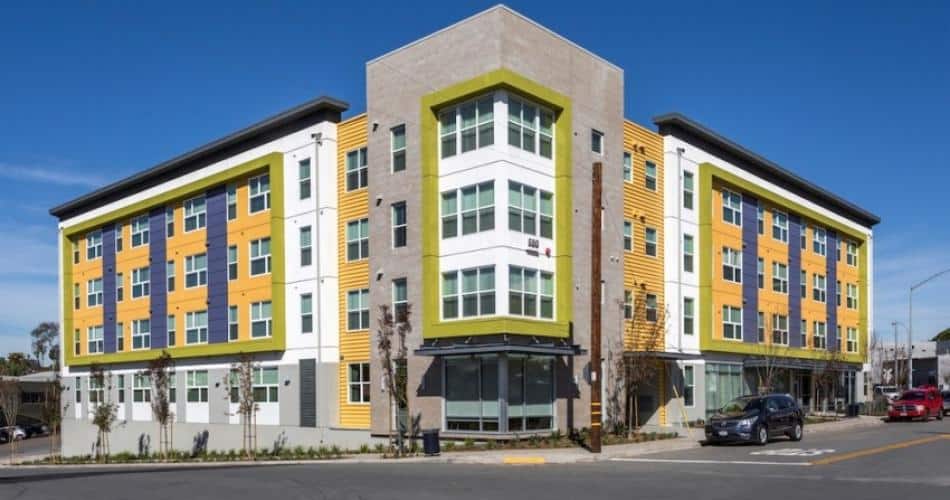Reading time: 5 minutes
LIHTC faces challenges, however. In large part due to the national housing crisis, where half of renter-households are spending 30% or more of their income on rent, LIHTC is not able to meet increased demand for affordable housing because there simply aren’t enough credits to fund all of the worthy developments. In addition, an unintended consequence of the 2017 Tax Cut and Jobs Act is the relative devaluation of these tax credits; meaning affordable housing production has decreased at a time when the need is growing.
To solve this problem, Up for Growth Action joined the Affordable Housing Tax Credit Coalition, which advocates for preserving and strengthening LIHTC. Topping the list of its priorities is the Affordable Housing Credit Improvement Act, which was introduced in June by a bipartisan coalition in both the House and the Senate. While the bills (S. 1703 and H.R. 3077) contain several provisions focused on enhancing LIHTC, their most important provision is a phased-in 50% increase in the allocation for the housing credit, which would enable an estimated 384,000 affordable homes over the next decade – significantly more than would be developed under current funding levels.
The Affordable Housing Credit Improvement Act locks in the current 4% tax credit rate for financing with housing bonds and tax credits to provide predictability to those utilizing the credit. The legislation also makes available additional credits for rural affordable housing development to ensure financial feasibility for these projects and clarifies that the credits can be used specifically for the development of veteran-only housing. To ensure effective stewardship of taxpayer dollars, the bills state that cost reasonableness should be considered in credit allocation, while enabling states to recycle Multifamily Housing Bonds in conjunction with the housing credits.
Significantly, the Affordable Housing Credit Improvement Act is a thoroughly bipartisan bill. In the Senate, it was introduced by Senators Maria Cantwell (D-WA), Todd Young (R-IN), Ron Wyden (D-OR) and Johnny Isakson (R-GA), and Reps. Suzan DelBene (D-WA), Kenny Marchant (R-TX), Don Beyer (D-VA), and Jackie Walorski (R-IN) in the House. As of today, the House version has over 115 cosponsors, while the Senate version has 17 cosponsors.
Housing is becoming more and more unaffordable for middle class Americans, in large part due to the 7.3-million-home deficit the country faces. But to date, Congress and the federal government has done little to alleviate these concerns, preferring instead to cede most housing policy to state and local governments. LIHTC is the exception to that rule and is an example of the role the federal government can and should play to create access to affordable housing. Without a robust LIHTC, the families and individuals in need of LIHTC-supported housing would otherwise have few housing options.
Up for Growth Action believes that a national crisis requires solutions at the federal level. But these solutions should not ignore existing programs with a long track record of success. LIHTC is responsible for creating millions of affordable homes across America while generating jobs and income and tax revenues. It should be preserved and strengthened to spur the development of additional affordable housing. The Affordable Housing Credit Improvement Act is smart and sensible legislation that should be high on the fall agenda for House and Senate leadership.
